The Congregation for the Doctrine of the Faith, the most important Dicastery of the Roman Curia, has had a new prefect since July 2, 2012: for the second time in the recent history of the Catholic Church a German theologian, Gerhard Ludwig Müller, the former bishop of Regensburg, a personal friend of Benedict XVI, has been chosen as prefect of the Congregation. Yet, the Pope’s choice was not dictated by personal reasons: Bishop Müller was chosen because he is one of the greatest theologians of the Church, as clearly proved by his academic curriculum vitae.
Gerhard Ludwig Müller was born into a working class family in Finthen, a borough of Mainz. He studied theology and philosophy in Mainz, Munich and Freiburg. He received his doctorate in 1977 and the following year was ordained by Cardinal Hermann Volk. In 1986 he was appointed professor of Catholic dogmatics at the Ludwig Maximilian University in Munich: he was 38 at the time and was one of the youngest professors at the university. In addition, he taught as visiting professor in Peru, Spain, the USA, India, Italy and Brazil. He is the author of more than 400 scientific publications, the best known of which is the monumental Catholic Dogmatics: The Study and Practice of Theology. Pope John Paul II appointed him bishop of Regensburg in 2002 (his episcopal motto is Dominus Iesus).
Müller was already known in the Vatican: he was a member of the International Theological Commission and worked with the Council for Christian Unity as an expert in ecumenism. In 2008 the Holy Father asked him to establish the Pope Benedict XVI Institute in Regensburg, whose main purpose is the publication of Joseph Ratzinger’s complete works.
The appointment of the Regensburg Archbishop as the guardian of Catholic orthodoxy was a cause for concern, as he was accused of having been in contact with representatives of liberation theology (he is a friend of Gustavo Gutiérrez, with whom he co-authored a book entitled On the Side of the Poor: Liberation Theology). Yet this theology was condemned by John Paul II and the former prefect of the Congregation for the Doctrine of the Faith. Liberation theology was therefore the main topic of our conversation.
As a priest and bishop, you have always been very sensitive to the values of justice, solidarity and human dignity. How did you become interested in social problems?
Archbishop Gerhard Ludwig Müller: I come from Mainz. Early in the 19th century there was a great bishop in my home town, Baron Wilhelm Emmanuel von Ketteler, a forerunner of the Church’s teaching on social doctrine. As a child I lived in a climate of social commitment. We must not forget that if we managed to establish a democratic society in Europe after the Second World War and the defeat of dictatorships, this is also to be credited to the social doctrine of the Catholic Church. Thanks to Christianity, values like justice, solidarity and human dignity have been introduced into the constitutions of many countries.
Your CV features numerous connections with Latin America. How did your link with the Latin American Church originate?
I visited Peru and other Latin American countries for fifteen years. I stayed there for two or three months a year, living a simple life like the common people. At first this is very hard for a European, but when one gets to know the natives and becomes familiar with their way of life, one can accept everything. A Christian is at home everywhere; Christ is present wherever there is an altar; you are part of God’s family, no matter where you are.
When you were appointed prefect of the Congregation for the Doctrine of the Faith last year, some accused you of being closely linked to Father Gustavo Gutiérrez, the initiator of liberation theology. How do you reply to this?
It’s true, I know Father Gustavo Gutiérrez well. In 1988 I was invited to participate in a seminar conducted by him. I had my reservations, being familiar with the two declarations of the Congregation for the Doctrine of the Faith on liberation theology published in 1984 and 1986 respectively. Yet I noticed that it is necessary to distinguish between a correct version of liberation theology and an incorrect one. In my opinion, good theology has God and His love as its starting point and is about the freedom and glory of God’s children. Therefore Christian theology deals with the God-given gift of salvation. Marxist anthropology is quite different from Christian anthropology because it regards man as deprived of freedom and dignity. Communism is about the dictatorship of the proletariat; good theology, on the contrary, is about love and freedom. Both communism and neo-liberal capitalism deny the transcendent dimension of human existence, restricting their action to the material sphere of human life. Capitalism and communism are two sides of the same coin. On the contrary, true liberation theology draws upon the Bible, the Fathers of the Church and the teaching of Vatican Council II to build up God’s kingdom.
In some circles your appointment as prefect of the Congregation dealing with Catholic doctrine and the recent election of the archbishop of Buenos Aires as Bishop of Rome are seen as a revenge of the liberation theology condemned by John Paul II and Cardinal Joseph Ratzinger. What do you reply to this?
First of all I would like to point out that there is no discontinuity between Cardinal Ratzinger/Benedict XVI and Pope Francis on the issue of liberation theology. The documents of the then-prefect of the Congregation for the Doctrine of the Faith were intended to specify what was to be avoided to make liberation theology the Church’s authentic theology. My appointment indicates continuity in the Church’s approach to liberation theology, not the opening of a new chapter.
Receiving a group of Brazilian bishops paying their ad limina visit on December 7, 2009, Benedict XVI said that “it is worth remembering that last August marked the 25th anniversary of the Instruction Libertatis nuncius of the Congregation for the Doctrine of the Faith regarding certain aspects of liberation theology.” Then the Pope added: “The consequences, no matter how visible, of liberation theology, which has produced rebellion, division, dissent, offense and anarchy, are still felt in some of your diocesan communities and cause great suffering and loss of living forces.” Do you agree with the Pope’s analysis of the consequences of liberation theology?
The negative aspects of liberation theology referred to by Benedict XVI are the result of the misunderstanding and wrong application of this theology. There would be no such results if authentic theology were applied. Ideological differences create divisions in the Church. But this also happens in Europe where progressive Catholics are opposed to conservative Catholics. This reminds us of the situation in Corinth where some referred to Paul, others to Peter and others yet to Christ. But we must all be united in God because God unites, evil divides. Theology which divides is ideology. Authentic theology leads to God; therefore it cannot produce divisions.
Your Excellency, on receiving your honorary degree from the Pontifical Catholic University of Peru, you condemned in your intervention “the infamy of our age: neo-liberal capitalism.” Is this a structure of evil?
It is difficult to make comparisons between a structure of evil and personal sin, because every sin has a social dimension being committed within a social structure, be it the family, the place of employment, the social environment or the nation. Neo-liberal capitalism is one of those structures of evil of the 19th and 20th centuries which intended to do away with Christian values. But, as I said, behind each structure there are people who accept its principles; therefore behind each structure of evil there are personal sins.

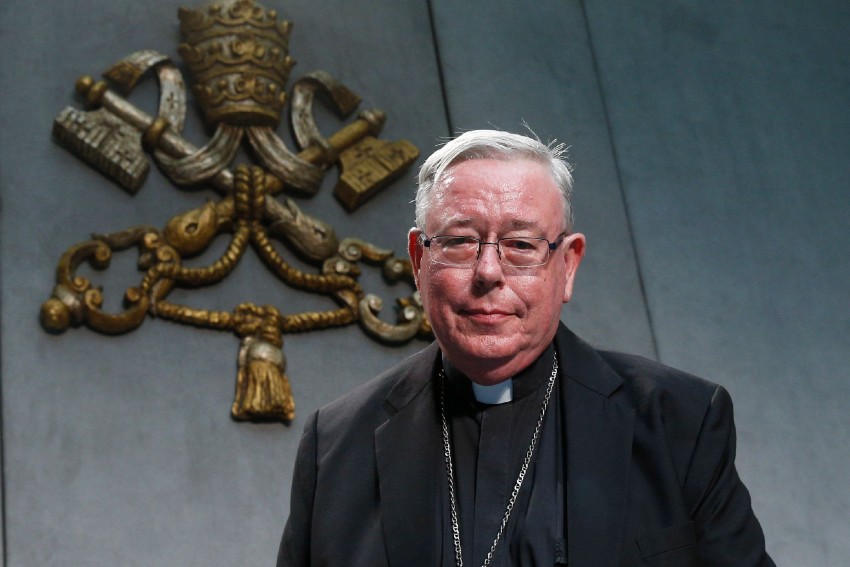
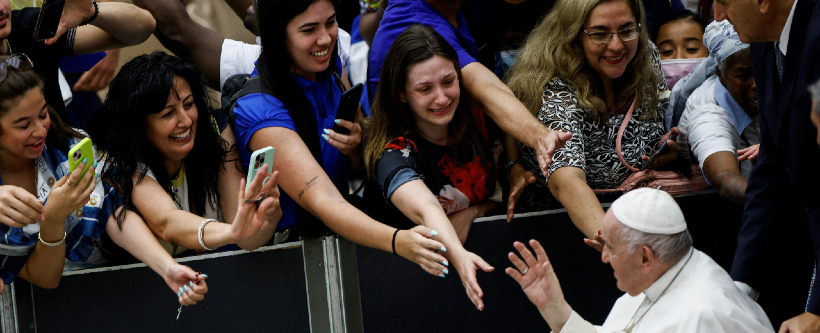
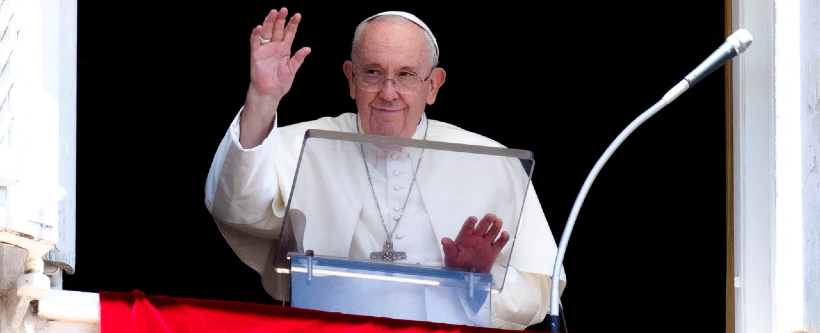
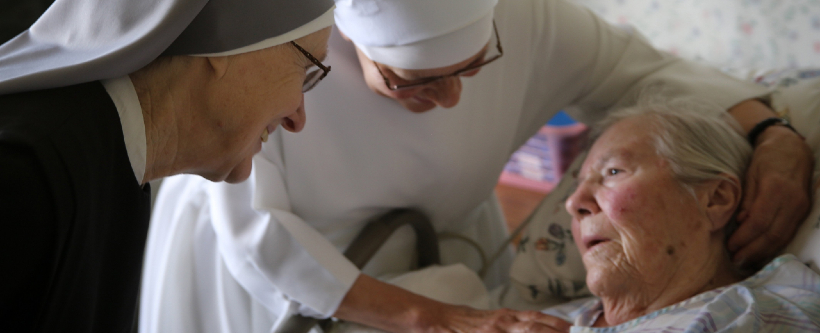
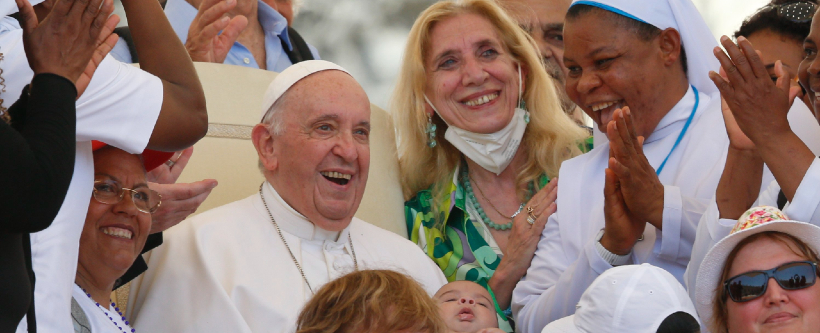
Facebook Comments